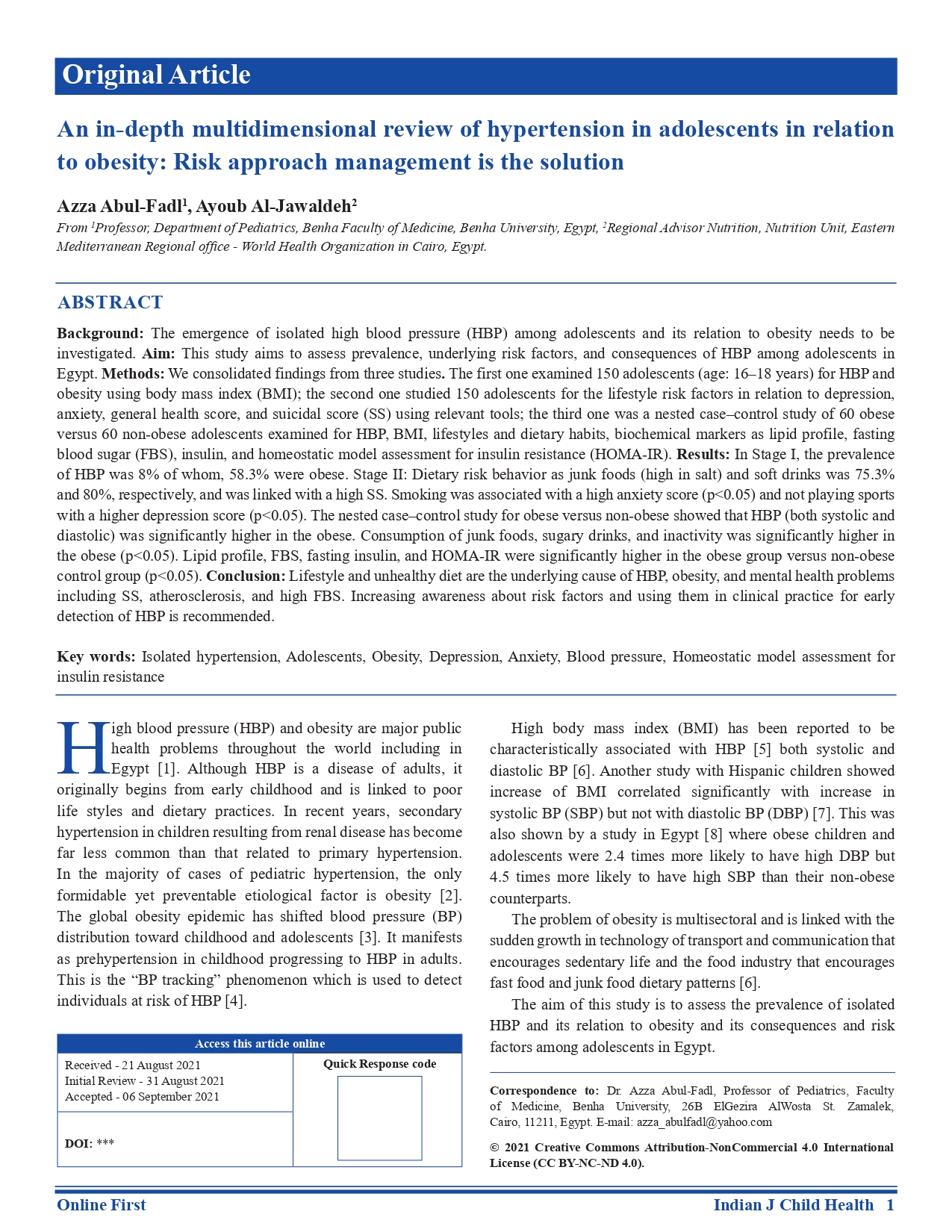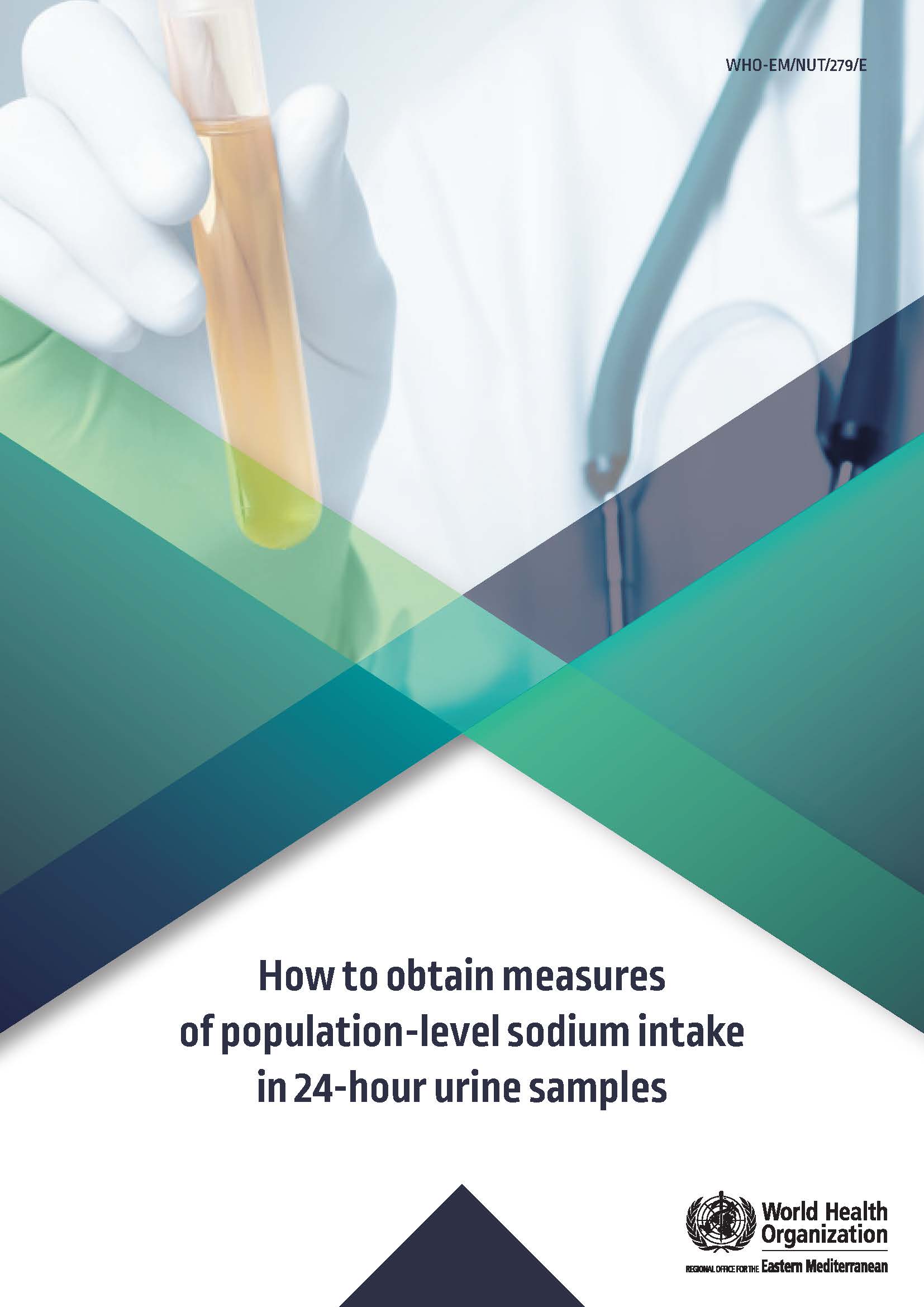
An in-depth multidimensional review of hypertension in adolescents in relation to obesity: risk approach management is the solution
Publication date: 2021
The emergence of isolated high blood pressure among adolescents and its relation to obesity needs to be investigated. This study aims to assess prevalence, underlying risk factors and consequences of high blood pressure among adolescents in Egypt. The study concludes that lifestyle and unhealthy diet are the underlying cause of high blood pressure, obesity and mental health problems including suicidal score, atherosclerosis and high fasting blood sugar. Increasing awareness about risk factors and using them in clinical practice for early detection of high blood pressure is recommended.

Unbalanced intakes of sodium and potassium among Tunisian adults: a cross‐sectional study
Publication date: 2021
The prevention and management of hypertension are associated with a lowering of sodium intake. The present study aimed to evaluate the sodium and potassium intake levels of the Tunisian population through measurement of 24‐hour urinary sodium excretions. This study demonstrates that a high sodium intake and inadequate potassium intake were found among adult populations living in urban cities. According to WHO, a Tunisian strategy was launched aiming at the reduction of salt intake, and the reduction of sodium content in bread was adopted as the main procedure.

Infant feeding and cardiovascular disease: A multi-staged analysis from global to country data
Publication date: 2019
Death from cardiovascular disease is the leading cause of death globally and in particular in the Eastern Mediterranean Region. This study examines the relationship between early infant feeding practices as risk factors of death from cardiovascular disease with a focus on high blood pressure in the 22 countries of the Region. As a conclusion, optimal infant feeding practices contribute directly and indirectly to reducing deaths from cardiovascular disease.

Fat intake reduction strategies among children and adults to eliminate obesity and noncommunicable diseases in the Eastern Mediterranean Region
Publication date: 2018
This paper discusses the noncommunicable disease burden and estimates the saturated fatty acids and trans fatty acids intake and their sources in the countries of the Eastern Mediterranean Region. It also reviews the evidence on health impacts of reducing saturated fatty acids and trans fatty acids intake, introduces regional strategies to reduce fat intake and provides examples of actions taken by countries.

How to obtain measures of population-level sodium intake in 24-hour urine samples
Publication date: 2018
There is compelling evidence of the direct relationship between salt consumption and blood pressure. WHO is coordinating initiatives globally to reduce dietary salt intake at the population level. This document provides an essential salt intake measurement tool for countries in the Eastern Mediterranean Region that want to start, contribute to, and share information on dietary salt reduction initiatives. The protocol is primarily intended for principle investigator(s) of studies of salt/sodium, potassium and iodine intake. Parts of the document are also intended for field staff who are conducting the surveys.



